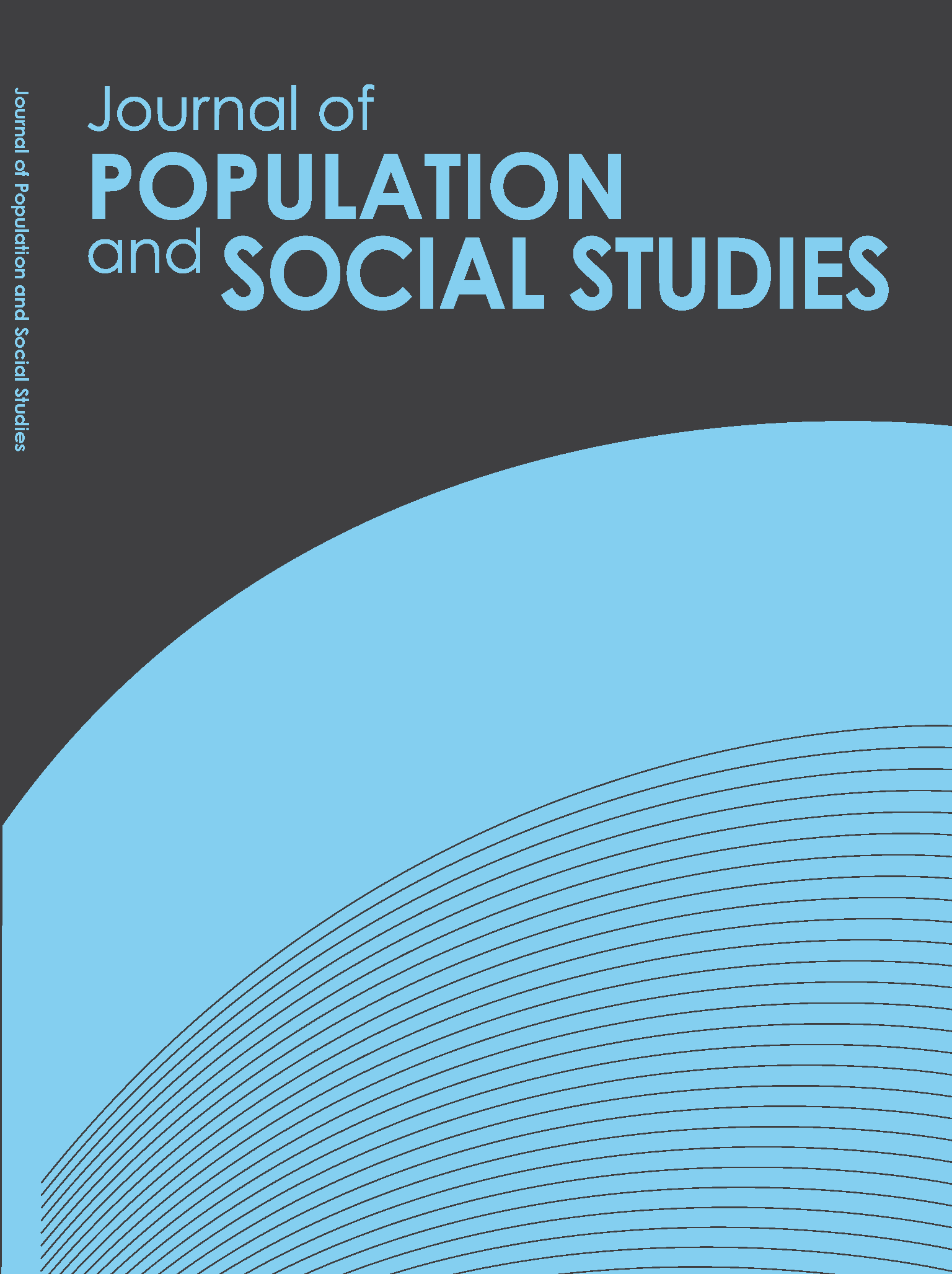Development of a Learning Process for Creating Community Identity: Results from Rayong, Thailand
Main Article Content
Abstract
Creating community identity needs a learning process to help communities identify, recognize and cultivate awareness of their identities, but few models exist. This study, which utilizes the participatory action research approach, highlights a 10-step learning process developed using a social capital-based community empowerment concept to create community identity. Results reveal that bonding social capital and basic capital have the highest potential for empowerment, but human capital and bonding social capital are significant. Mutual planning and decision-making, promoting leadership, encouraging collaborative learning, internal communications, continuous operations, and self-reflecting and evaluating were methods used to empower the community. Community study, analyzing social capital, and determining the community identity were extremely important processes. The most significant factor is people, especially community leaders and local intellectuals. This learning process can be used and applied to other communities with similar contexts. For different areas, indicators in a community study process should be carefully considered and specified in order to make use of resources that currently exist in the target community.
Article Details
References
Apakaro, P. (1996). นวัตกรรมการเรียนรู้ : คน ชุมชน และการพัฒนา [Innovative learning: People community and development]. Bangkok: The Enhancing Community Learning for Happiness Project.
Community Development Department. (2010). คู่มือแนวทางการบูรณาการแผนชุมชน [Handbook of integration community plans guide]. Bangkok: Office of Strengthening Community, Community Development Department.
Geartner, S. L., Dovidio, J. F., Jason, A. N., Brenda, S. B., Christine, M. W., Houlette, M. & Loux, S. (2000). The common ingroup identity model for reducing intergroup bias: Progress and challenges. In D. Capozza & R. Brown (Eds.), Social identity process trends in theory and research (pp. 133-148). London: Sage Publications.
Gilchrist, A., Bowles, M. & Wetherell, M. (2010). Identities and social action: Connecting communities for a change. London: Community Development Foundation. Retrieved from: http://www.justact.org.uk/wp-content/uploads/2013/10/16-Identities-and-social-action-Connecting-communities-for-a-change-A-Gilchrist-M-Wetherell-and-M-Bowles-08.09.10-for-web.pdf
Kitiarsa, P. (2003). ท้องถิ่นนิยม [Localism] (2nd ed.). Bangkok: Inn-Som Fund for Anthropology Research.
Ledogar R. J. & Fleming J. (2008). Social capital and resilience: A review of concepts and selected literature relevant to aboriginal youth resilience research. Pimatisiwin. 6(2), 25-46.
Maton, K. I. (2008). Empowering community settings: Agents of individual development, community betterment, and positive social change. American Journal of Community Psychology, 41(1-2), 4-21. doi: https://doi.org/10.1007/s10464-007-9148-6
Mathews, D. (1997). From individual to public: Process to enhance community strength. (T. Senakam, Trans.) Bangkok: Local Development Institution.
Mead, G. H. (1934). Mind, self and society. Chicago: University of Chicago Press.
Meemark, W. (2007, February). รัฐกับการเสริมสร้างพลังประชาชน/ชุมชน [Government and people community empowerment]. Paper presented at The Thailand 1st International Conference on Public Administration, Bangkok, Thailand.
Nakornthap, S. (1996). การศึกษาเพื่อการพัฒนาที่ยั่งยืน [Education for sustainable development]. In The Thailand Research Fund (Ed.), การศึกษาและการวิจัยเพื่ออนาคตในประเทศไทย [Education and research for the future in Thailand]. (pp. 61-64). Bangkok: The Thailand Research Fund (TRF).
Office of the Education Council. (2011). สังคมแห่งการเรียนรู้ต้นแบบ รุ่นที่ 2 [Learning society model generation 2]. Bangkok: V.T.C. communicate.
Office of the National Economic and Social Development Board. (2011). Eleventh national economic and social development plan B.E. 2555–2559 (A.D. 2012–2016). Bangkok: Office of the National Economic and Social Development Board, Office of the Prime Minister.
Ortigas, D. C. (2000). Poverty revisited: A social psychological approach to community empowerment. Quezon City: ADMU Press.


